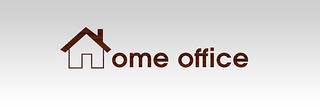Miscellaneous itemized deductions are generally deductible
to the extent the expenses exceed 2% of adjusted gross income (AGI). Some
miscellaneous itemized deductions are not subject to this rule.
Miscellaneous Itemized Deductions
Subject to the 2% AGI Limitation
Most miscellaneous itemized deductions are deductible to the
extent they exceed 2% of AGI.
Tax Preparation Fees
The cost of tax preparation and advice is deductible,
including the cost of tax preparation software programs and books on tax
preparation. Deductible costs also include fees paid for electronic filing.
Credit card convenience fees associated with the payment of
federal tax, including the payment of estimated tax, can be included as
miscellaneous itemized deductions, subject to the 2% AGI limitation.
Note: The portion of the fees to prepare tax schedules
related to self-employment, rental property, and farming operation are
deductible as business expenses on the tax forms used to report income and
expenses for these businesses rather than as a miscellaneous itemized
deduction.
Investment Expenses
Deductible investment expenses, such as separately billed
IRA trustee fees, are amounts paid to produce, manage, or protect property held
for earning income. Personal expenses are not deductible.
Loss on Traditional
IRA or Roth IRA
Losses on traditional IRAs and Roth IRAs are not deductible
unless the entire account balance of all traditional IRAs, or all Roth IRAs,
are distributed and the taxpayer has unrecovered basis left in the traditional
or Roth IRAs. Distribution of the entire account balance applies separately to
all traditional IRAs and Roth IRAs.
Legal Expenses
Legal fees related to producing
or collecting taxable income or getting tax advice is deductible.
Miscellaneous Deductions Not Subject
to the 2% AGI Limitation
The following expenses are not limited by 2% of AGI.
Casualty and theft losses of income-producing property.
Deduction for federal estate tax paid on income in respect
of the decedent.
Amortizable bond premium on taxable bonds acquired before
October 23, 1986.
Deduction for unrecovered investment in a pension or annuity contract.
Gambling Losses
The
full amount of gambling winnings for the year is reported as income. Gambling
losses are deducted as an itemized deduction up to the total amount reported as
income. Taxpayers claiming losses must keep an accurate diary or similar record
of losses and winnings.
Impairment-Related Work Expenses
Taxpayers with physical or mental disabilities who limit employment or
substantially limit one or more major life activities, such as performing
manual tasks, walking, speaking, breathing, learning, and working, can claim a
deduction for impairment-related work expenses. Expenses must be ordinary and
necessary for the employee who is disabled to perform work satisfactorily.
Unrecovered Investment in an
Annuity
A
retiree who contributed to the cost of an annuity can exclude from income a
part of each payment received as a tax-free return of the retiree’s investment.
If the retiree dies before the entire investment is recovered tax free, any
unrecovered investment can be deducted on the retiree’s final income tax
return.






